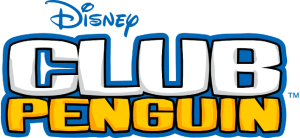
In Conversation With: Chris Hendricks, Club Penguin Composer

When I was waddling around Club Penguin’s virtual island as a small child, it was far from my imagination that I would, one day, be holed up from a real-life blizzard in North Denmark and speaking to the game’s composer: Chris Hendricks. Just a few years prior to that, Hendricks himself would have been equally shocked to learn that his career would pivot to music. Coming out of high school in Kelowna, Canada, certain that his future lay in TV or film animation, receiving the opportunity to work on a little online game then known as Penguin Chat came as a surprise to Hendricks. He did odd jobs for Lance Priebe (Club Penguin’s founder, known to millions of children as Rocket Snail) for a number of years, before joining the team full-time in 2005. Most of his contributions at this time were in animation or artwork, including making the actual penguin avatar that players used. Over the course of its 12-year existence, Club Penguin saw hundreds of millions of player accounts created, becoming something of a cultural touchstone for many children of the late 1990s and early 2000s.
After two years of working on the animation team, how did you suddenly become the composer for Club Penguin?
Music was in my background. Growing up, I started piano lessons when I was five, but I always found myself enjoying music. I’ve always found myself making my own songs, even at a really young age, more than I enjoyed playing other people’s music. So it was just a hobby thing – I never went to school for composing… In late 2006, one of the games that we launched on Club Penguin was called Thin Ice, and Thin Ice is very much styled to be this 8-bit arcade game, and there wasn’t a lot of that style of music. So I’m looking through the libraries of those and I’m realising after about an hour and a half, I could just make something, and it would be faster than the process I’m going through right now… I had been gifted a Yamaha keyboard with all these onboard sounds, so I had an upgrade of sounds from the start. From early 2007 on, we realised it would be a lot better if we had our own music rather than royalty-free music that anyone could own for their products.
In the music, you can tell that they’re onboard sounds – and I don’t mean that as a criticism.
Oh no, it can be a criticism, that’s fine.
I don’t mean it as a criticism because there are a lot of people, people like Bill Wurtz (a fellow animator-musician) that have that MIDI sound as part of the aesthetic and the charm. Was that just a practical choice because you had the keyboards or was it an aesthetic choice as well?
That was only a practical choice – I hadn’t even really looked into the world of VSTs [Virtual Studio Technologies – basically virtual instruments]. I had, up until that point, barely even tried out various pieces of composing software. This was me kind of figuring it out as I went along , and you know, after a year and a half or so of using these Yamaha keyboard sounds, there are better options out there – maybe I should look into it. That’s when I started looking into the full VSTs and going into the EastWest library and finding out people have made some amazing orchestral instruments.”
Would you then say that you split your compositional career up into the pre-and-post ‘onboard sound’ eras?
Absolutely. Sled Racing was the first one after the fact… Sled Racing was a special one because we knew we had this minigame that didn’t have any music, and after the first three years of its existence it should have some music. What really pushed us over the edge was that there was going to be this Club Penguin Wii game that also had sled racing in it… That was the kind of push towards [getting] a handle on those VSTs and those instruments and finding out what I’m dealing with. There’s a definite era change once I got the higher-quality stuff.
Sled Racing, as with all the other rooms and minigames, got their own unique pieces of music. This is a higher effort, harder way of incorporating music than having a few tracks that are not tied anywhere. Why was it decided to take the perhaps slightly harder route to have more, but more specific music?
You know, that’s actually the first time I’ve ever been asked that. I don’t think we even considered doing it any other way, which is kind of odd because bandwidth would still kind of add a premium in 2008. But there was just this understanding that Club Penguin has such a diverse range of influences and parties and anything kind of could happen on Club Penguin – how could there be only three or four songs that just generically represent the whole game when you have pirates coming in and ninjas up on a mountain? It wouldn’t have worked very well if we had tried to just make a one-size-fits-all experience like that. It wasn’t even considered.
The music is pretty bouncy and uptempo – it’s not ambient background music that lies below what’s going on. How much did you think about a sense of music, making the music present but not overbearing?
I would argue that at first, the music was a bit overbearing, because we got a lot of requests from kids like ‘please put in a mute button so that we can turn off the music when we’re playing this!’… The music becomes a part of the experience that just cannot be separated from it. Growing up with movies in the 80s and 90s that have very recognizable themes – more so than movies tend to today – it was this feeling of ‘actually, we kind of want some degree of earworm of songs that get stuck in your head’. I personally feel more comfort in making that kind of music versus ambient soundscapes. I’m not really that kind of composer – generally speaking, that’s not my forte. So I went where I was comfortable.”
When it comes to the nature of composing for a video game, especially one with the technology of 20 years ago, did that create boundaries or changes in the music itself, or the way it was presented?
Oh, absolutely. We were still aware when we launched in 2005 that there were kids using dial-up modems to play Club Penguin. When we were first putting songs onto Club Penguin, not only did they tend to be on the shorter side, but we would even break it up so it would be five small chunks of song, and they would be broken up in such a way that if you started playing songs number one, and you hadn’t finished loading chunk number two, you could go back to number one. It was kind of a way of doing streaming without fully doing streaming.… The technology required us to present the songs in certain ways, so it’s been interesting now that the high-quality audio has been showing up more on YouTube channels. You have all these kids going ‘oh, this is what it should have sounded like! It’s like I’m hearing it for the first time, I feel like I heard it back then, but now it’s real!’
I mean, speaking of hearing things for the first time – the Club Penguin audience was young. I was playing it when I was five. For a lot of people, that’s going to be one of their earlier exposures to music, not to mention a kind of ‘score’. Did you feel that at all?
No, not really. I would have assumed at the time that musical influences would have been through cartoons, or radio, or other video games. It has been a delightful surprise to find out just how many people have had their music career, and even just their music references, shaped by what they heard on Club Penguin. That’s been quite the honour.
What would you do differently now if you were put into 2005 and told to make the first songs for Club Penguin again?
Oh, I’d be freaked out if I was told in 2005 to start making songs for Club Penguin because I didn’t think I was enough of a composer to be able to do it at the time – Club Penguin was my training ground. I would’ve gotten virtual instruments earlier, I wouldn’t have stuck with the Yamaha keyboard as long as I did, and I probably would have just listened to a bit more advice from other composers around me… I’d just tell myself back in 2003 to ‘have more confidence in your audio skills, you actually can do some amazing things there’. Animation is great, but it turns out that that’s not where I am most gifted, and that would’ve been a big surprise to me at the time… More confidence in myself in general, I think. There’s still a huge amount of imposter syndrome.
Finally, something that I always ask musicians: what’s your favourite chord?
That’s interesting because I so infrequently think in those kinds of ways. There are some people that are masters at [chords], and I don’t tend to think that way. When I’m thinking of chords, I sort of just stick with a bass and adjust a few notes one way or another. I will say that a perfect fifth is a wonderful interval. Removing the third and going with the one and the five, it’s so simple, but you can go anywhere from it. You can turn it major; you can turn it minor – you can turn it into so many things… That’s something I’ve learned from listening to a lot of Thomas Newman soundtracks (Shawshank Redemption, Finding Nemo, American Beauty). He’s a master of the fifth – I do like that as well. I don’t know if you’re going to count two-note intervals as a chord, but it is one of my favourites.∎
Words by Albert Genower. Photo courtesy of Chris Hendricks.







